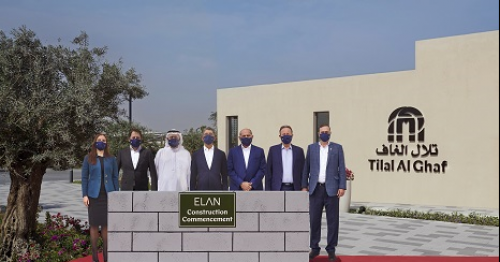Pay what you can afford plan for Indian schools in Oman
No child will be denied and education by Indian schools in Oman over the parents’ inability to pay fees, the Board of Directors (BOD) of these schools has clarified.
BOD Chairman Wilson V George said: “Any parent who is financially challenged and unable to pay the infrastructure fees as a lump sum amount, upon submission of a written request, will be granted the option to pay it in convenient instalments.”
The statement comes after a majority of the Indian schools in Oman, including those in Muscat, Al Ghubra, Seeb, Darsait, Buraimi and Salalah, introduced a non-refundable infrastructure fee of OMR100 for new admissions, and OMR10 for existing students.
The collections are meant to fund the building of new schools and upgrading of the facilities at the existing institutions.
A large number of Indian schools have also increased tuition fees, starting from the academic year beginning April 2018.
George said: “Although the Indian schools function as a single broad consortium, there are areas where each school, with its diverse management and having come into existence at various times, functions independently. The fee structure is one such aspect where schools have been granted the autonomy to determine their annual fees, as there are operational and infrastructural needs that are unique to each school. The fee structure is also being reviewed and revised periodically to reflect and meet the needs specific to that institution.”
"While the BOD does regulate each school in terms of general guidelines applicable to all schools, the BOD has not put in place a common fee for all schools as they have deemed it currently unfeasible to unify the structure across all schools. It is therefore possible for schools to have different approaches towards fees, while complying with all the regulations laid down by the BOD. A comparison of the schools with respect to the fees levied is therefore not practical and will also lead to unnecessary confusion and apprehensions,” he added.
The Chairman also said: “One of the immediate priorities of the BOD is to alleviate the plight of the over 3,000 children currently studying in afternoon schools. It is towards this urgent need that they are expediting the construction of a new Indian School at Al Ansab. The work on the school is expected to be completed by this year-end and it could begin functioning from the academic term 2019-2020. The new school, with a capacity of more than 4,000 students, will be a boon to parents and the Indian community in the Muscat region. This will not only put an end to the need for afternoon classes but also help reduce the number of students in each class from the current 45-50 students per class to a more favourable student-teacher ratio.
“Similar efforts are being undertaken across all the Indian schools in Oman to meet the immediate and urgent needs of infrastructural development, through permanent, sustainable solutions that have the safety and security of the children as their primary focus,” he said.
The Board Chairman continued: “The BOD ensures their continual support for deserving children who hail from financially weak backgrounds. This is effected through various initiatives such as the waiving of fees, scholarships, sponsor-a-child program, etc. The Board reiterated that no child would be denied admission or access to education by Indian Schools under their governance due to the inability of parents to pay the required fees.”
tag: oman-news , daily-oman
Share This Post






